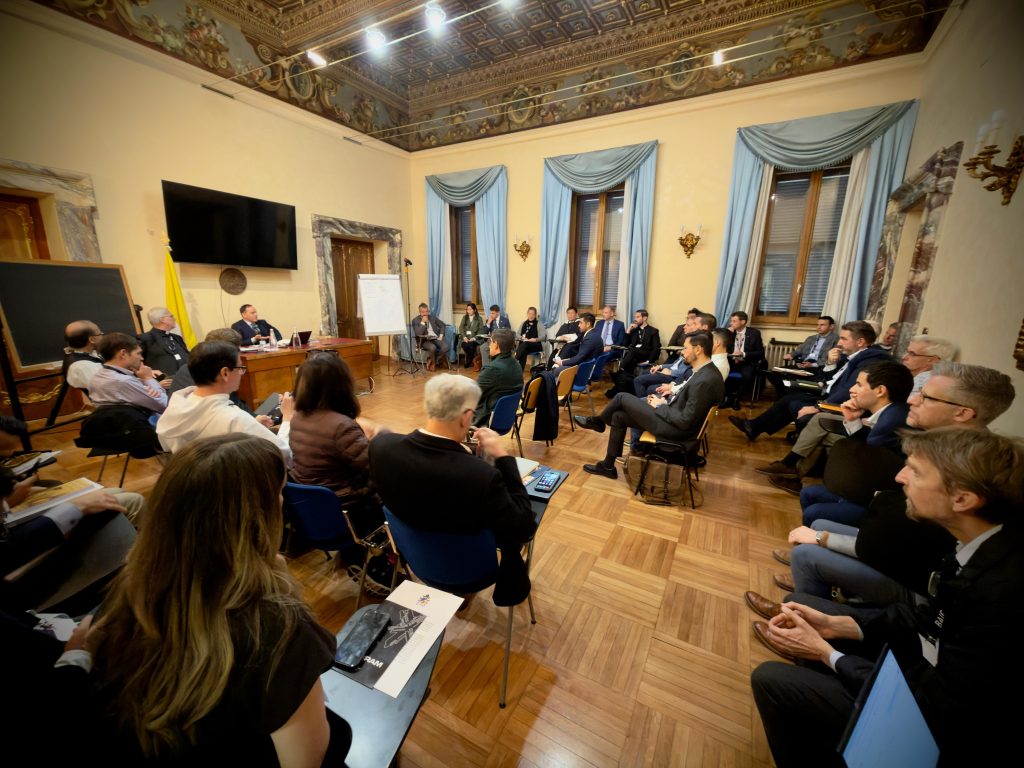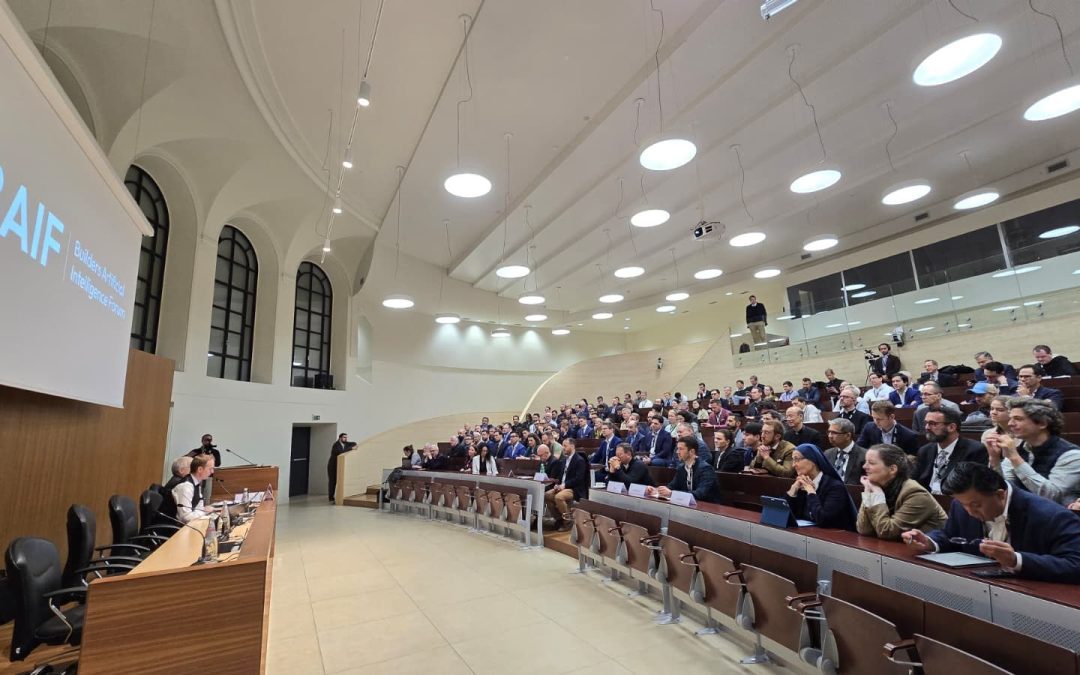Our Society was represented by President András Tóth at the Catholic Builders AI Forum, held at the Pontifical Gregorian University on November 6–7, 2025. Pope Leo XIV welcomed the participants with a special written message.
The conference gathered nearly 200 Catholic investors, developers, and thinkers—most of them from the United States—which clearly reflects the geographic, financial, technological, and intellectual center of gravity in today’s AI development. It is worth recalling that Father Jáki wrote one of the earliest Catholic reflections on artificial intelligence in his 1969 book Brain, Mind, and Computers. A deeply moving address was also given by the mother of a boy who tragically committed suicide after interactions with a chatbot. In his letter to the forum, Pope Leo XIV emphasized the moral and spiritual responsibility of Catholics in the development of artificial intelligence.
Participants explored AI-related questions from a Catholic perspective across six working groups (Catholic AI, artificial consciousness, healthcare, media, robotics, and others). The president of our Society joined the working group on artificial consciousness. In his intervention, he drew on Father Jáki’s insights, stressing that attributing intelligence to rational machines is a deeply reductionist position.

Referring to the Council of Nicaea 1,700 years ago, he emphasized that the human person is both body and soul. According to Antiqua et Nova, the soul is passive and receptive, forming understanding together with reason. Intelligence therefore cannot be reduced to mere rationality. From a biblical perspective, it is life—not consciousness—that is central: God is the creator of life. Scripture consistently rejects as idolatry the attribution of life to inanimate, man-made objects.
He further noted that concepts such as personality, consciousness, and self-reflection are ultimately shaped by social consensus, as illustrated by the criminalization of animal cruelty. Consequently, it is uncertain whether the capacity to feel pain—often highlighted in utilitarian arguments—will determine the legal recognition of artificial consciousness. It is entirely possible that society’s evolving perceptions of what “feels real” about machines will become the decisive factor. This, in turn, opens the door to the shaping of public opinion for commercial gain, potentially diminishing human dignity. The Church must firmly resist this trend, emphasizing that human attitudes toward technology are decisive. Moreover, the Catholic tradition reminds us that revelation does not permit us to ascribe to lifeless, human-made objects the qualities of living beings.
A striking feature of the discussion was the American emphasis on individual and personal dispositions rather than on the role of the state or regulation. Questions of public policy were almost entirely absent from the reflections.
